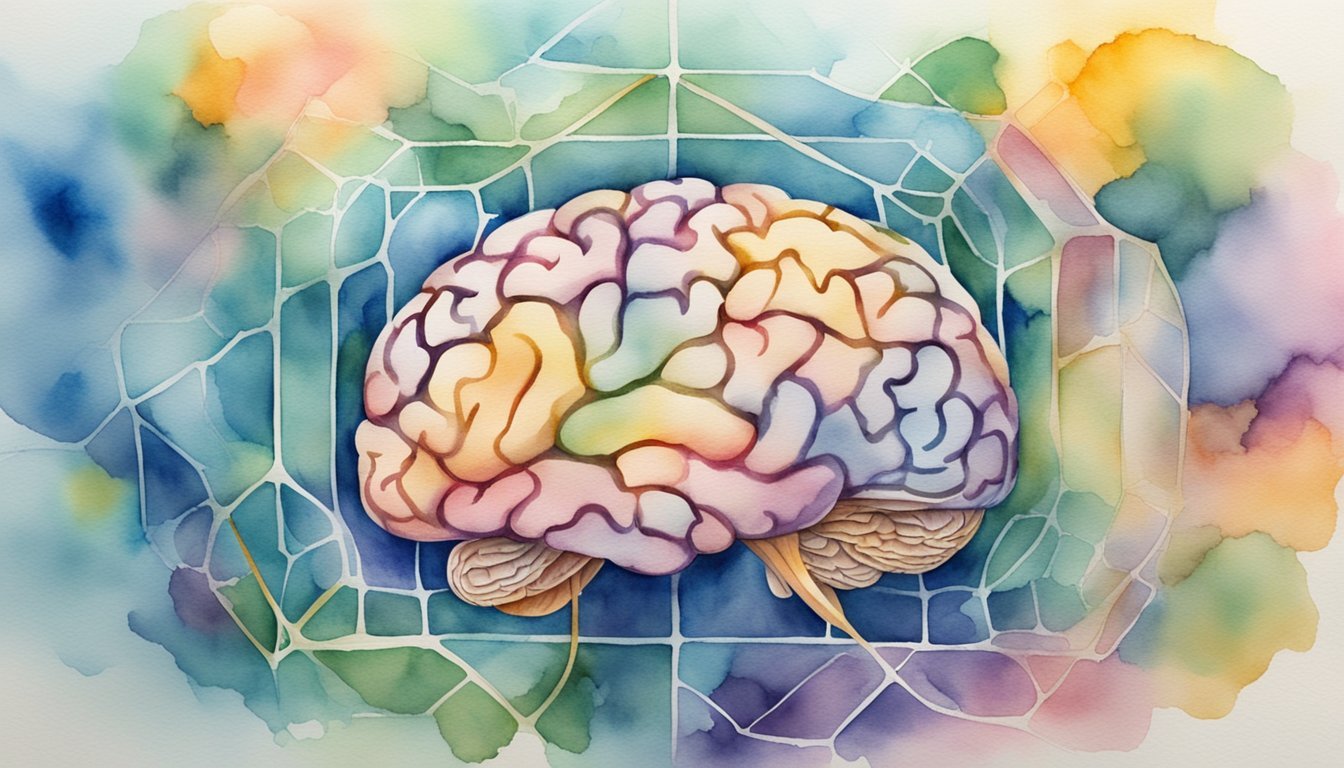Understanding Stress and Brain Health
In our day-to-day lives, stress is a common phenomenon that can affect our overall health, including our brain. This section will discuss how stress and brain health are interconnected and the various impacts stress can have on the brain.
The Science of Stress
Stress activates the hypothalamic-pituitary-adrenal (HPA) axis, which releases a stress hormone called cortisol. Cortisol plays a significant role in regulating the body’s stress response. It is important to understand that not all stress is harmful, and in fact, some stress can help improve cognition and stimulate neurogenesis (the production of new neurons). However, chronic stress is where the real problem begins, as it over-activates the HPA axis and can lead to negative consequences on brain health.
Stress’s Impact on Brain Structure and Function
Chronic stress has been found to affect crucial brain regions, such as the hippocampus and the prefrontal cortex. The hippocampus is responsible for learning and memory, while the prefrontal cortex handles higher-order tasks like decision-making and emotional regulation. Excessive cortisol production can impair functioning in these areas and even lead to a reduction in gray matter.
Furthermore, chronic stress can disrupt the blood-brain barrier and increase inflammation, leading to potential damage to neurons and a hindered overall brain function. It is also important to note the role of epigenetics in experiencing stress, as it can influence the long-term impact of stress on an individual’s brain, cognition, and emotional wellbeing.
Stress and Mental Health Disorders
Stress is often linked to various mental health disorders such as anxiety, depression, and other mood disorders. The overactivation of the HPA axis and the release of cortisol can have a significant impact on mental health. The amygdala, an area of the brain responsible for emotional processing, plays a crucial role in the stress response. When an individual experiences prolonged stress, they may become more susceptible to emotional distress and the development of mental health disorders.
Moreover, the neurobiological link between stress and brain injury is also a significant factor to consider. Chronic stress has been observed to worsen neurological disorders like Alzheimer’s disease, stroke, traumatic brain injury (TBI), and epilepsy.
In summary, understanding how stress affects brain health is crucial to managing its impacts on daily life and overall wellbeing. One must acknowledge the importance of maintaining a balanced stress response for optimal brain health and function while staying aware of the potential dangers of chronic stress.
Coping With Stress to Protect the Brain

Managing stress is crucial in protecting your brain from potential damage. In this section, we will discuss some stress management techniques, lifestyle choices, and the importance of seeking professional help and social support.
Stress Management Techniques
One effective way to cope with stress is through practicing relaxation techniques, such as deep breathing, visualization, or mindfulness meditation. These activities can help lower your heart rate, reduce tension, and clear your mind, making it easier to tackle daily stressors.
Another essential aspect of stress management is exercise, as it improves mood, increases resilience, and boosts metabolism. Including regular physical activity in your routine, like walking, running, or yoga, can help mitigate the consequences of stress on the brain.
Lifestyle Choices and Stress Reduction
Making conscious lifestyle choices can also play a significant role in reducing stress. Prioritizing good-quality sleep is crucial, as sleep deprivation can impair higher-order brain functions. Establishing a consistent sleep schedule and creating a relaxing bedtime routine can promote better sleep quality.
Paying attention to your diet is another essential aspect of stress reduction. Consuming a well-balanced diet of fruits, vegetables, whole grains, and lean proteins can provide the necessary nutrients for optimal brain health.
Limiting alcohol consumption is also advised, as excessive alcohol intake can interrupt sleep patterns, contribute to weight gain, and exacerbate stress.
Professional Help and Social Support
If stress becomes too much to handle alone, seeking professional help from a therapist or counselor is a valuable resource for coping with stress. They can offer techniques for managing stress and addressing any underlying mental health concerns.
Additionally, fostering strong social connections with friends and family can provide a support system to lean on during difficult times. Engaging in activities such as volunteering or joining community groups can enhance feelings of social connectedness and promote stress reduction.
By incorporating these stress management techniques, lifestyle choices, and seeking support from professionals and loved ones, you can effectively cope with stress and protect your brain from potential damage.

